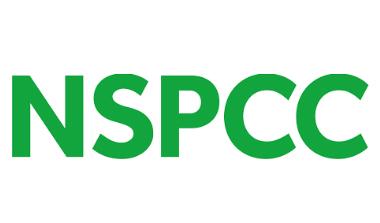8 Ways To Have An Eco-Friendly Christmas
Family Health / ConservationChristmas can be a time of joy and celebration, but it doesn't have to cost the Earth. By changing a few little things, you can have a family Christmas that is greener and kinder on the planet. Our eco-friendly Christmas guide will help you have a sustainable, affordable Christmas the whole family will enjoy.
1) Make your own gifts
If you want to help the planet this Christmas, have you thought about making your own gifts?
From homemade jams and chutneys to framed pictures of the kids (or their best artistic efforts), the options are endless. And handcrafted items often make cheaper gifts.
There’s nothing more special than receiving a handmade gift – the more personal, the better. The fact that they're eco-friendly is an added bonus - Christmas craft ideas.
2) Buy second-hand Christmas gifts
Charity shops are brilliant places to find unusual and green gifts. And every penny you spend helps to support a good cause. If nothing catches your eye, most charities also sell on eBay. There are lots of local sell or swap groups on Facebook too.
3) Gift an experience instead
If you want to give someone a gift they’ll never forget, you can’t beat an experience. Studies have shown that experiences also make people happier than things.
Gifting an experience can show someone you really know them. They can bring you closer together too and are a chance to create new memories together.
Things like treating your best friend to a spa day (pick a spa that has green credentials) or taking the kids to the seaside.
It doesn’t have to be expensive either. You could organise a fun family games day or invite a friend over for their favourite meal. If cooking’s not your thing, you could arrange a Christmas lights tour around town.
4) Give an eco-friendly gift
Our Christmas shop has over 50 eco-friendly gifts for adults and children alike. With prices starting at under £5, there’s something to suit all budgets. And every purchase you make will help us be here for all children this Christmas. Shop our eco-friendly gifts.
5) Buy NSPCC Christmas cards
In each pack of our NSPCC Christmas cards, you’ll find 10 cards of the same design, plus envelopes. All are glitter-free and printed on FSC-certified cardboard in the UK. They come in biodegradable packaging and every pack you buy helps support our work. Shop NSPCC charity Christmas cards.
6) Choose eco-friendly decorations
Lots of Christmas tree decorations still contain things that are bad for the environment like plastic or glitter. So it's best to check and choose alternatives if you're not comfortable with them. It also helps to avoid fake snow, as it’s made from finely ground polystyrene, while tinsel is made from PVC.
If you want some wallet- and eco-friendly Christmas decorations to help you deck out your tree in style, check out our Christmas decoration range available in our online shop. Shop NSPCC Christmas decorations.
7) Ditch the plastic
Every Christmas, we throw away more than 100,000 tonnes of plastic packaging instead of recycling it. Christmas doesn't have to be a time of plastic excess. You can help reduce this waste in a few ways.
But one of the best ways to help reduce this is to buy less plastic in the first place by:
- avoiding buying fruit and veg pre-packed in plastic. Instead, bring a bag and buy it loose
- steering clear of shiny wrapping paper that’s coated in plastic. If you’re buying new wrapping paper, always check the label to see what it’s made of. We’ve got several Letter from Santa themed designs in our Christmas gift wrap shop. Better still, reuse and recycle any paper left over from last year
- avoiding flimsy plastic toys that will be broken, and in the bin, before you know it. If you’re looking for more durable alternatives, you’ll find a selection of wooden toys in our Christmas shop.
8) Turn your food waste into compost
Try and reduce your food waste as much as possible by not overbuying – particularly fresh food. Nobody wants to have to eat sprouts for days on end. Have a compost bin in the kitchen for fruit and vegetable scraps, teabags, coffee grounds, eggshells, and plant waste.
If you have a garden, Christmas is the perfect time to start a compost heap. If you have any surplus food, there are also apps you can use to give it away to local people.

















































